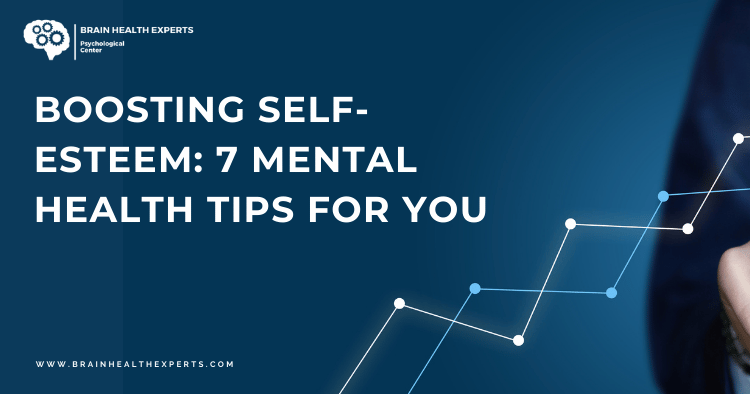Table of Contents
- Understanding Self-Esteem
- Recognize Your Strengths
- Practice Self-Compassion
- Set Realistic Goals
- Surround Yourself with Positivity
- Engage in Physical Activity
- Seek Professional Support
- Frequently Asked Questions (FAQs)
Understanding Self-Esteem
Self-esteem refers to how we perceive ourselves, encompassing our beliefs, emotions, and overall self-worth. It plays a crucial role in mental health and can significantly impact our daily lives. A healthy level of self-esteem allows us to navigate challenges, build relationships, and pursue goals, while low self-esteem can lead to anxiety, depression, and other mental health issues.
According to the American Psychological Association, self-esteem is not a static trait but rather a fluctuating state influenced by various factors, including our experiences, relationships, and internal dialogue. Understanding this concept is the first step to improving your self-esteem and, consequently, your mental health.
For additional insights into self-esteem, consider exploring 10 Proven Techniques to Boost Your Self-Esteem Today.
Recognize Your Strengths
One of the most effective ways to boost self-esteem is by recognizing and celebrating your strengths. Everyone has unique qualities and talents, whether they are interpersonal skills, creativity, or problem-solving abilities.
Tips to Identify Your Strengths:
- Reflect on Past Successes: Think about moments when you felt proud of yourself. What skills contributed to those successes?
- Ask for Feedback: Others can often see strengths in us that we overlook. Reach out to friends, family, or colleagues for their insights.
- Create a Strengths List: Write down at least five things you appreciate about yourself. Keep this list handy and revisit it regularly.
Visual Element: Strengths Self-Assessment Table
| Strengths | Examples |
|---|---|
| Creativity | Enjoys painting, has innovative ideas |
| Empathy | Good listener, helps friends through tough times |
| Resilience | Overcame personal challenges, adapts to change |
Practice Self-Compassion
Practicing self-compassion involves treating yourself with the same kindness and understanding you’d offer a friend. It’s about acknowledging your struggles without harsh self-judgment.
Ways to Cultivate Self-Compassion:
- Use Positive Affirmations: Start your day with positive statements about yourself. Remind yourself that it’s okay to be imperfect. For more on this, check out 10 Powerful Affirmations to Boost Mental Health Today.
- Mindfulness Meditation: Engage in mindfulness practices to stay present and acknowledge your feelings without criticism. Apps like Headspace can guide you.
- Forgive Yourself: Understand that everyone makes mistakes. Instead of dwelling on failures, focus on what you can learn from them.
Set Realistic Goals
Setting achievable goals can significantly enhance your self-esteem. When you accomplish these goals, you build confidence and a sense of competence.
SMART Goal Framework:
- Specific: Clearly define what you want to achieve.
- Measurable: Determine how you will measure success.
- Achievable: Ensure your goal is realistic.
- Relevant: Align your goals with your values and interests.
- Time-Bound: Set a deadline for your goal.
Example Goal:
Instead of saying, “I want to get fit,” try, “I will walk for 30 minutes three times a week for the next month.” For more tips on setting goals, you might find 10 Tips to Overcome Negative Thought Patterns Today helpful.
Surround Yourself with Positivity
The people you surround yourself with can greatly influence your self-esteem. Positive relationships foster support, encouragement, and a sense of belonging.
Tips to Cultivate Positive Relationships:
- Evaluate Your Circle: Identify individuals who uplift you and distance yourself from those who drain your energy.
- Join Supportive Communities: Engage in groups aligned with your interests, whether online or in-person. Websites like Meetup can help you find local gatherings.
- Practice Gratitude: Regularly express appreciation for the positive people in your life, reinforcing those relationships. You can learn more about gratitude in 10 Simple Gratitude Practices to Boost Positive Thinking.
Engage in Physical Activity
Physical activity is not just beneficial for your body; it’s also vital for your mind. Regular exercise releases endorphins, which can elevate your mood and enhance self-esteem.
Exercise Ideas to Boost Your Mood:
- Walking or Jogging: Simple and effective, these activities can be done anywhere.
- Yoga: Incorporates mindfulness and physical activity, promoting relaxation and self-acceptance.
- Group Classes: Join a dance, spin, or martial arts class to combine fitness with social interaction.
Visual Element: Benefits of Exercise Table
| Benefit | Description |
|---|---|
| Mood Enhancement | Releases endorphins, reducing anxiety |
| Improved Sleep | Increases overall sleep quality |
| Boosted Confidence | Achieving fitness goals enhances self-worth |
For more on how physical health impacts mental well-being, check out 10 Ways Positive Thinking Boosts Physical Health.
Seek Professional Support
If low self-esteem significantly impacts your life, consider seeking professional help. Therapists can offer guidance tailored to your unique situation and help you develop strategies to improve your self-esteem.
When to Seek Help:
- Persistent feelings of worthlessness
- Difficulty managing daily tasks due to low self-esteem
- Struggles with anxiety or depression
Resources likeSure! Please provide the Markdown content you would like me to convert to HTML.Sure! Please provide the Markdown content that you would like me to convert to HTML.





